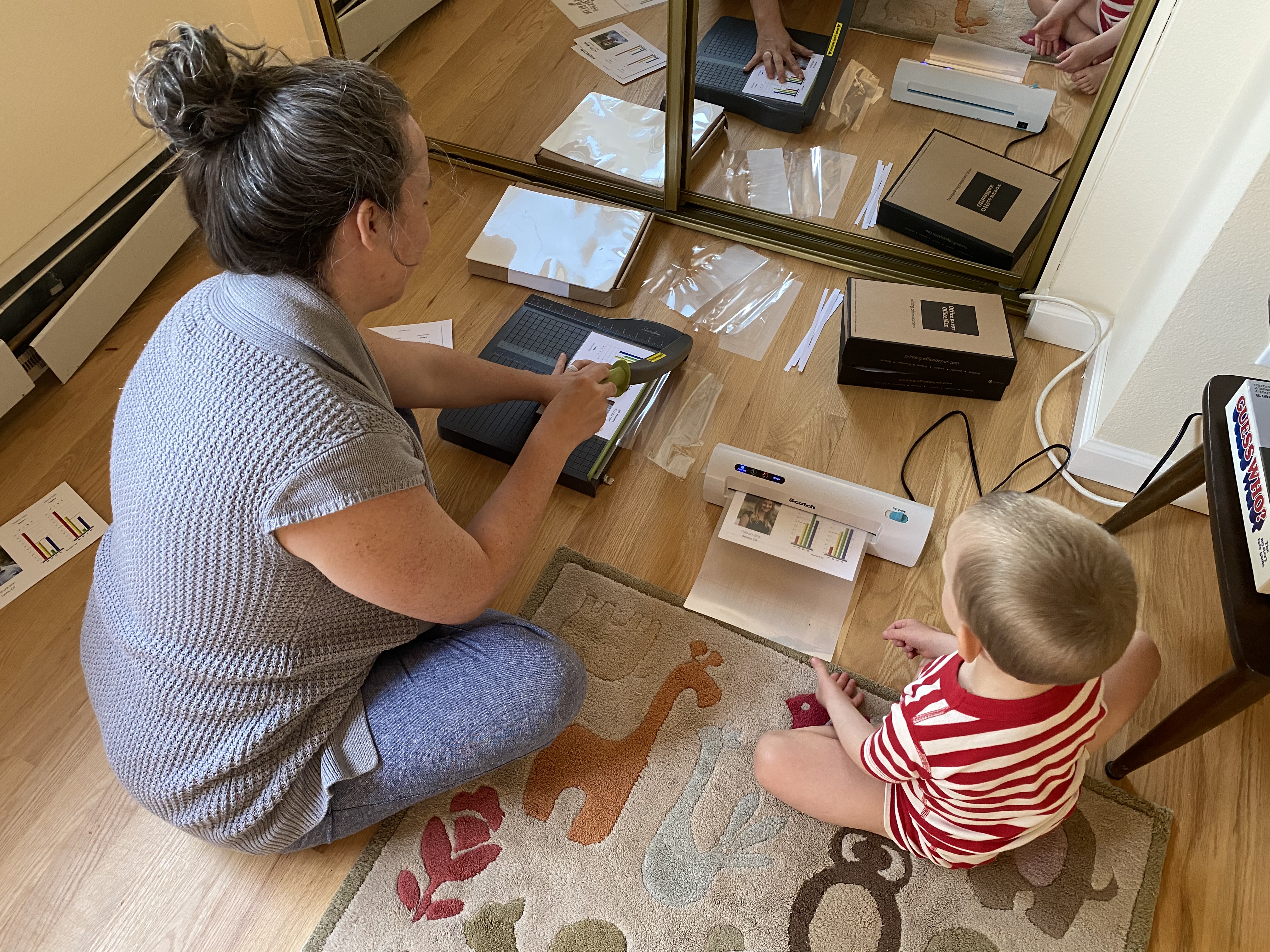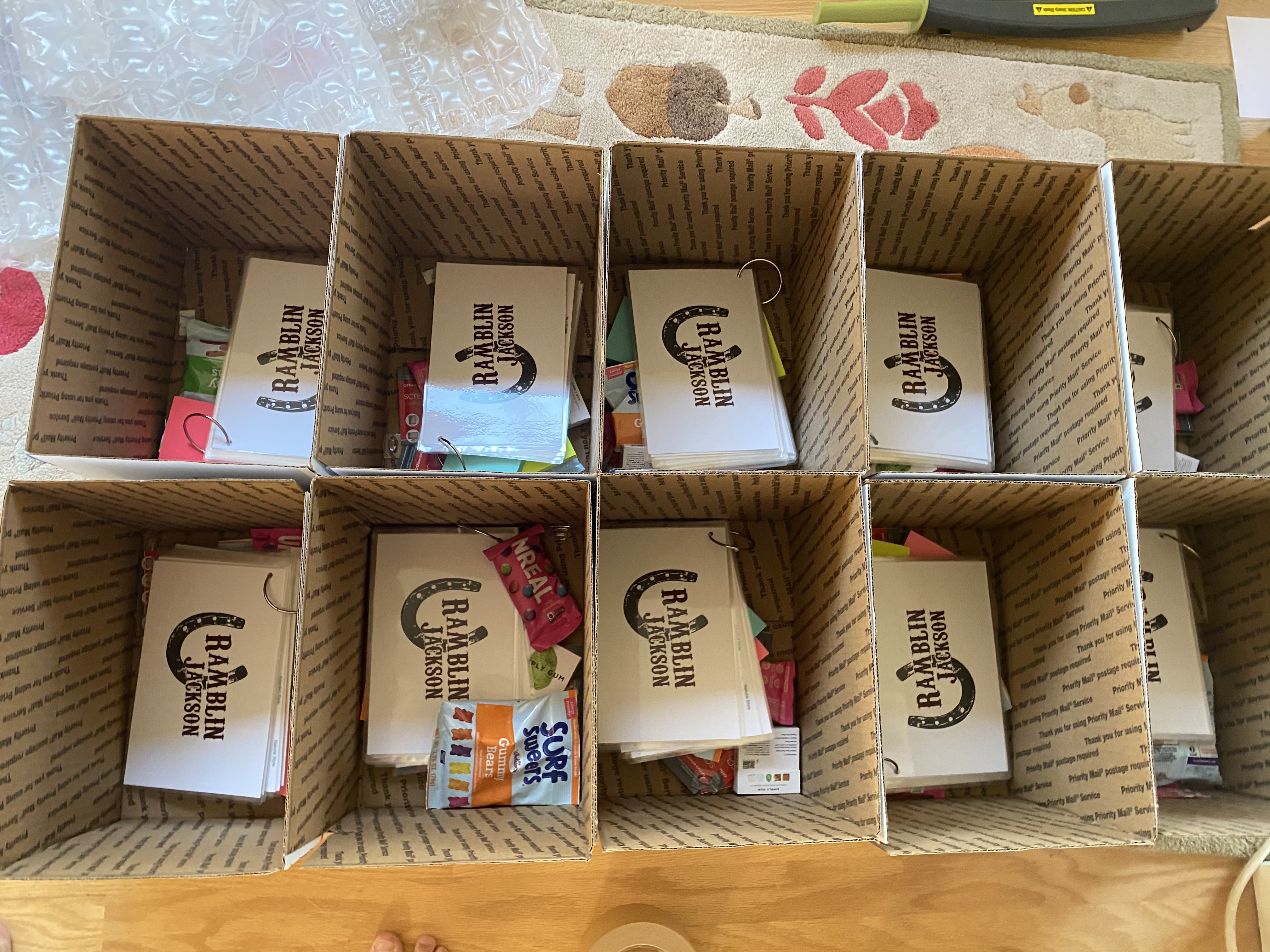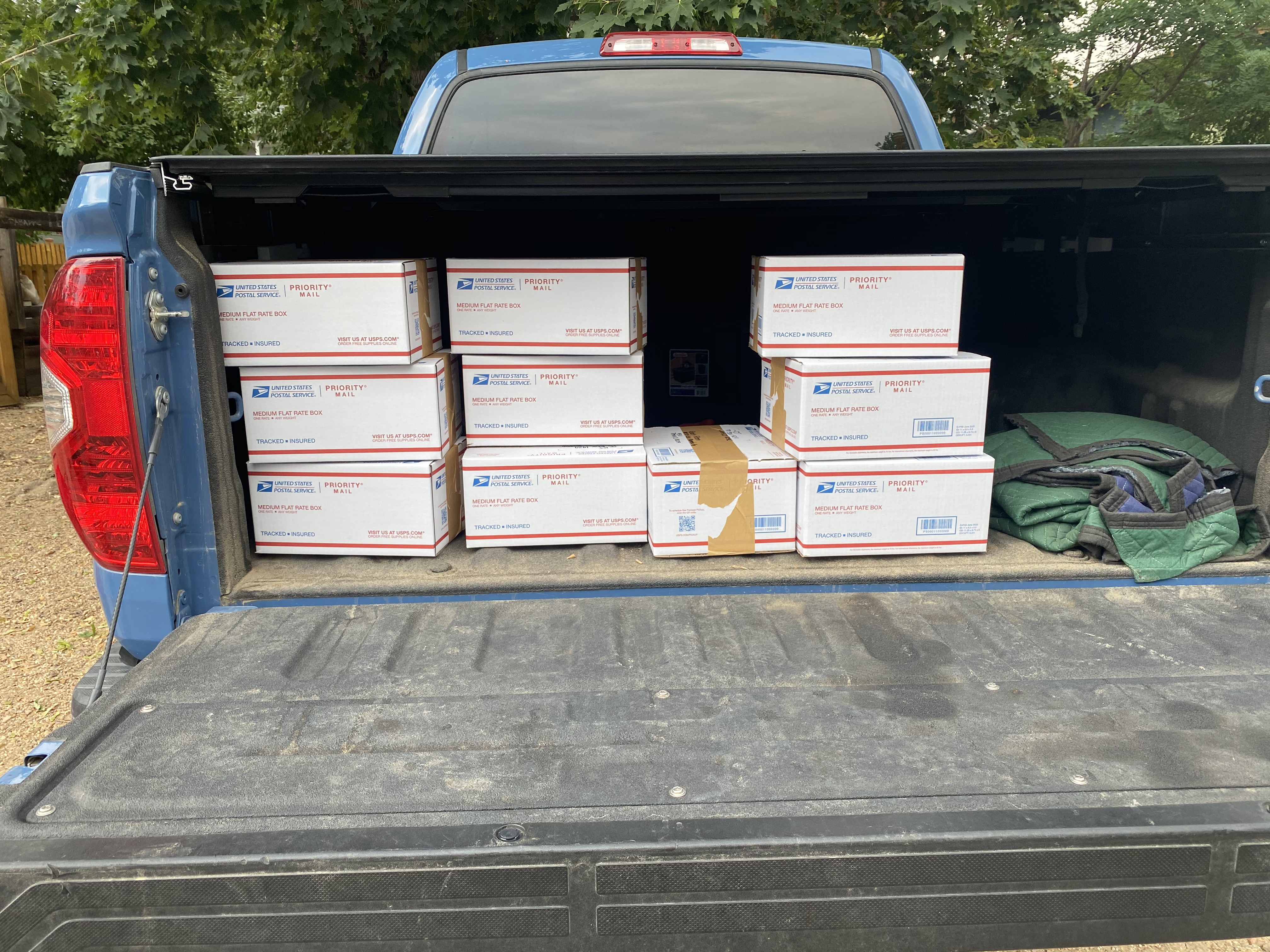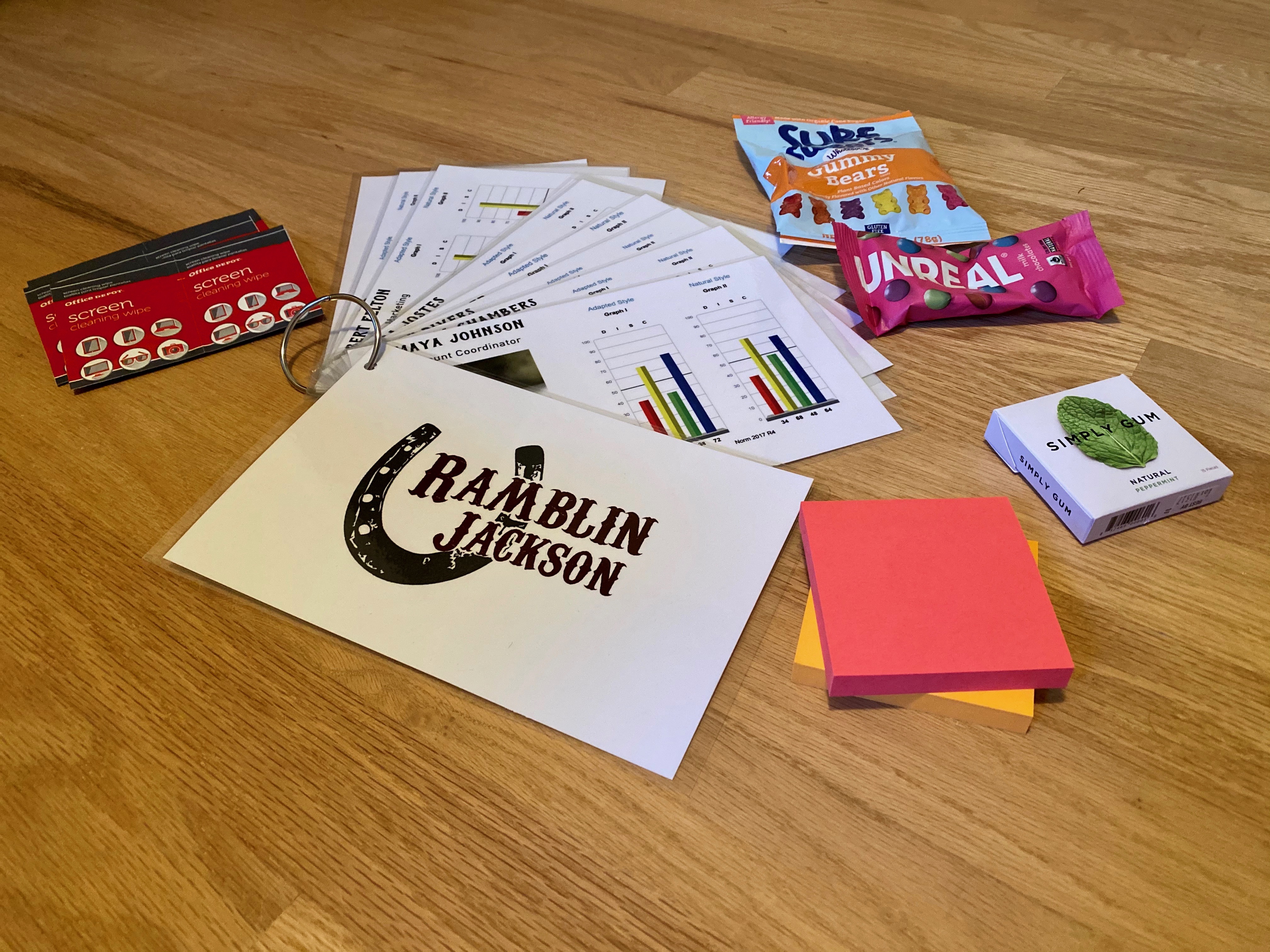What Is DISC?
DISC is a personality assessment, originally created around 1928 by a psychologist named William Moulton Marston and I've learned various iterations of DISC from my first sales coach, Hugh Liddle, who called it Social Styles, and later from my coach, Wayne Herring.
I've read a lot about it. I'm certainly not an expert in it, but in this video, I wanted to share some things that I have found that have worked in using DISC to manage my team at Ramblin Jackson. Now, there are a lot of different assessments out there. There's Myers-Brigg, there's the Kolbe, there's all different kinds of things, and they're basically designed to help us figure out, "What makes people tick? How can they be motivated?"
"How are they going to interact in certain situations?," and most importantly, how to communicate well with this person based on their personality. DISC is D-I-S-C, and the D stands for dominance, the I stands for influential, S stands for steadiness, and the C, I've seen varying ones, either compliance or conscientious, and let's dig into what those different letters actually mean when we're talking about behavior.
Tip For Identifying Someone's DISC Profile: Are They Introverted Or Extroverted?
When you're looking at the DISC quadrant, one of the things that's been really helpful for me in using DISC is to first look, when I'm working with somebody is to determine, "Are they extroverted or introverted?" Extroverted people are going to be bringing the energy to you. They're probably going to be leading the conversation when you meet them the first time, whereas an introverted person, maybe more quiet and waiting for you to talk first.
In the DISC quadrant on the top, we have people who are task-focused, and on the bottom, we have people who are more people-focused, and on one end of the spectrum, we have people who are introverted, and of course, people who are extroverted.
While you're determining if somebody is more introverted or extroverted, next, think about, "Are they more focused on tasks, or numbers, or data, or are they more focused on you, or relationships or people?" People who are extroverted and focused on tasks or numbers would be in the D quadrant. Those are the people who are more dominant. This is where my personality lies, and we'll talk more about that later. Now, people who are extroverted, but maybe more focused on people, people who are maybe the life of the party, they might make you laugh, things like that, those will be people in the I for influential.
Now, if somebody is introverted and they're very focused on data, on tasks, they're very organized, they want to make sure the rules are followed, if you're in a parking lot with them, they'll want to make sure that the car is parked in between the lines equally, that sort of thing, that's somebody who's going to be in the C quadrant, who is going to be more conscientious or compliant or controlled, whereas somebody who is introverted but also very relationship-focused, and they're very interested in how you're doing and how your day has been, and your family, things like that, that might be somebody who is more of an S personality who is into steadiness.
In the DISC assessments that we use at Ramblin Jackson, there is a line that goes through the middle, and we talk about this as the energy line. Now, if somebody's score is above the energy line, that means that when they need to do work or behavior that is more in line with that particular bar, if it's above that line, it'll be energizing for them, whereas if it's below those types of tasks or behaviors, will be deenergizing, or they'll be draining for that person.
At Ramblin Jackson, we actually created a print, little guide for each person, and it has their headshot, it has their DISC profile. We include our phone number and the town, because we're a remote company, and so my wife actually printed these and laminated them, made a little key ring, and we shipped these out to people with a box of gifts, little snacks and things. The purpose of this is to keep this close by your desk.




How To Communicate With Different DISC Personalities
Here are some of the communication tips that come from this.
How To Communicate With D Personalities
-
-
- Be clear, concise, brief, and to the point
- Stick to business, be prepared, support material in a well-organized package
-
If I have a client who's like this, and I had a client who was even, they were Super D, I would bring them a one-page sheet to meetings of, "Boom, boom, boom. Here are the key stats," and they would read that, and they would decide very quickly what they wanted to do next.
How NOT To Communicate With D Personalities
The things that will really bore this person or create tension would be:
-
-
- Talking about things that are not relevant to the task or the issue that they care about
- Leaving loopholes or cloudy decisions
- Appearing disorganized.
-
How To Communicate With I Personalities
If you're dealing with somebody who is extroverted but more people-focused, this would be somebody in the I quadrant, who is influential, and you're going to want to:
-
-
- Provide a warm and friendly environment for them
- Don't deal with a lot of details verbally - put them in writing
- Ask a lot of feeling questions. "How do they feel about things to draw their opinions or comments?"
-
How NOT To Communicate With I Personalities
Things that'll create tension or dissatisfaction for these people would be:
-
-
- Being curt, or cold, or tight-lipped
- Controlling the conversation
- Not letting them talk
- Driving on facts and figures, alternatives, and abstractions.
-
That's one of the key differences between an I personality versus a D, is a D might really enjoy those facts and figures as long as they were quick, well-organized, and relevant to whatever you're talking about.
How To Communicate With C Personalities
If you're dealing with somebody who is more on the introverted side, and they are very focused on tasks, data, and order, they would be in the C quadrant, when communicating you want to be:
-
-
- Neat, conservative, and careful
- Prepare your case in advance
- Stick to business
- Be accurate and realistic
-
One other tip that I found when you're working with somebody who is a C personality is to give them time to think in the meeting.
Whereas somebody like me who is more extroverted, I'm going to be more of a dominant personality, I might decide really quickly in a meeting if, like what my decision is, and that's it, whereas somebody who's more of a C personality will, they might be reviewing something internally, and you're going to want to give them the space to do that.
How NOT To Communicate With C Personalities
Things that don't work well with C personalities are:
-
-
- Being giddy, casual, informal, or loud
- Pushing too hard, or being unrealistic with deadlines
- Being disorganized or messy
-
These are people who are usually very organized. They make some of the best spreadsheets. Really appreciate these people, and so those are some of the tips for the C personality types.
How To Communicate With S Personalities
When you're working with someone who is more introverted, but people-focused, and a lot of people don't understand how that makes sense. Let me explain. There's a lot of people who are very relationship-focused and very, they're interested in people, they're not the life of the party like the high I personalities that are going and making everybody laugh, but most people in the S personality style for steadiness is actually the most popular. I don't know if it's the most popular, but most Americans, or the greatest percentage of people have an S dominant personality trait. When you're working with people who are an S for steadiness, these people are very predictable, reliable, you're going to want to:
-
-
- Spend time building rapport and relationship with them
- Present your case softly and in a non-threatening way
- Let them talk. Give them time to think.
-
How NOT To Communicate With S Personalities
Things that'll really not work well either in working with somebody, selling to somebody like this would be:
-
-
- Rushing head straight into business (this is especially true if you are selling to an S personality)
- You can't be domineering, or demanding, or force them to respond too quickly
-
You've got to build rapport with them, and I've found that selling to S personalities, in particular, may require more time over time. Meaning, it might take multiple meetings even to sell to somebody like this. You can clash, if you're a high D personality, if you're not aware of this, because you might think that they're just taking too long, but it's just part of how they operate. Those are some general tips.
Of course, everyone is different, and at Ramblin Jackson, we created these little cards, and on the back of them, we let each person here pick their favorite ways to be communicated with, and also ways not to communicate with them. If you're a rambler watching this video, I recommend that you use these and read these, and the reason we put them on the key ring is so you can keep them accessible and near your desk, so maybe something, maybe you're having a hard time communicating with me or with another rambler, you can use these to figure out ways to communicate, or maybe something that you've been doing that isn't working with them. There is no right or wrong personality. What I've learned in having studied this and in growing Ramblin Jackson, is to really appreciate the strengths that certain personality types bring to the table, such as S. S personality types are really great.
They are really helpful team members because I'm really weak in that area. I have like, my S is so low, so doing things that require a lot of steadiness, they're not energizing to me. They're draining to me, where there are people who have a high S that are like totally stoked to do those things. For those of you watching who are thinking of how to use this in your company, I really believe that in order to have a well-rounded team, you need the right people in the right seats, and you need to think about the behaviors that those people are going to need to do in and out, and would, somebody who's more extroverted do well in them or somebody who's more introverted, and somebody who's more task-minded versus people-minded.
Use DISC Personality Assessments To Hire The RIGHT People for the Right Positions
These assessments, I use them when I'm hiring as one of the factors to help me decide, "Is this person going to really excel in this position?" Since doing that, I really feel like right now, we have the right people on the bus in the right seats who are like, they are wired to do their job, and they're really energized by it, and now, we're getting amazing results. I hope you enjoyed this video. If you are curious about DISC personality assessments, there's a lot online again. I am by no means an expert in this. I do work with a coach, Wayne Herring.
Should check him out, businessbuildercamp.com. I learned a lot of this stuff from him. I would definitely recommend that you work with somebody to get access to these types of assessments. Another fun thing is to do this assessment with your spouse, and then everything just makes so much more sense.
How My DISC Profile Has Changed Throughout The Years + How To Work Well With Me
Now, when it comes to my DISC profile, I've been tracking my ... I've done the DISC assessment several times over the year, and I realized how much running the business has actually changed my personality, because while the overall markup of my DISC profile is the same, I mean, I've always been a high D than I, low S, and pretty high level of C, what has changed for me over the years is when I was doing more of the work myself, when I was doing all of our SEO tasks, the copywriting, things like that, my C, my level of C was way higher. I can get into the zone and do very focused, precise work when I know that the outcome of it is going to be to drive the completion of a sale.
I love what we do. I love SEO for that reason, but my C has gone down, and my D is like laughably ... I see this, I'm like, "This makes so much sense." My D is a 94 for natural and a 93 adapted, and so what has changed for me over the years is I've needed to become more ... My coach, Wayne shared with me that this is a lot like being a fire chief.
Somebody with a DISC profile like mine is extroverted, but I'm task-focused, and I'm like, "All right, here's the fire. You go over here. You parked the truck there. We are doing this," and it's kind of a commanding presence, and it took me a long time to learn to embrace that as a leader. My DISC profile, if you're working with me, know that that's kind of my zone and that I decide things really quickly in meetings, and when there's a problem, literally, if there's a fire or something like that, I'm excited by that. If something's broken or if somebody's marketing is broken, I enjoy that, and making decisions quickly about where we're going to go, what we're going to do, boom, boom, boom.
Here are the tasks. For somebody who ... A lot of people really like working with me for that reason because I will decide things quickly, but I've definitely butted heads with people who are maybe a high I. Maybe they're not as into the tasks. They want to move quickly, but I move too quickly with the tasks. I've definitely butted heads with high S people who are like, "Holy cow, who is this guy that wants to go so fast?," so reading this can be helpful.
One of the things that creates some tension for people working with me is the ... This creates a tension for me also, is the high level of C in my personality is like the high D is like, "All right, we're getting things done yesterday. Go, go, go, go, go," and then the C is like, "But wait, it needs to be done really well, and you forgot a comma, and it better be organized." That can be frustrating for me, but the way that it usually comes out is I end up creating systems and checklists quickly, and then I can direct other people to follow them. The people on our projects team have a way ... I hire people who have a way higher level of C because they are wired to spend the time doing all of those tasks that we do for clients so thoroughly.
Those are a couple tips for communicating with me. Support the results, not the person, if I agree. Sometimes I don't care who is saying it. If I agree with the results, come prepared with the requirements and objectives in a well-organized package, that sounds good. It sounds great.
Bring that to a meeting. Verify that the message was heard. That is something that bothers me, is if I'm in a meeting and somebody isn't paying attention, or there is a directive given, if people haven't heard it can frustrate me. Okay. Things that are ways not to communicate with me would include letting me change the topic until you are finished, so I encourage that, even though people are like, "Wow, this guy is calling the shots, and he's this high, outgoing D personality." Don't let me change the subject until you're done with what you need.
I really respect and appreciate that. Ramble on or waste time. I do not like meetings that are rambling or wasting time, or forgetting to follow up. That's something that really bothers me. Those are some tips on my DISC and working with me, and for those of you who are watching who are business owners, knowing your own DISC profile can help you communicate better with other people on your team. It can help you learn to sell more effectively.
I really believe hiring people who are wired for the position. That is the like secret weapon to maintaining and growing a team, in my opinion, is if you can figure out and it's kind of the ongoing journey and puzzle, but once you start figuring out what kind of personality is really going to excel in a certain position and you can assess people before they accept the offer and you know you've got somebody who's likely to succeed, it's pretty powerful.
Thanks so much for watching this video. Let me know in the comments or send me an email, jack@landscapersguide.com.
Was this helpful? Are you using this at your company? I'd love to know, and check out some of our other podcasts about leadership and management at landscapersguide.com/podcast.
